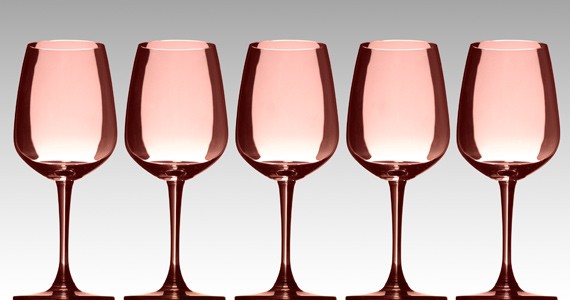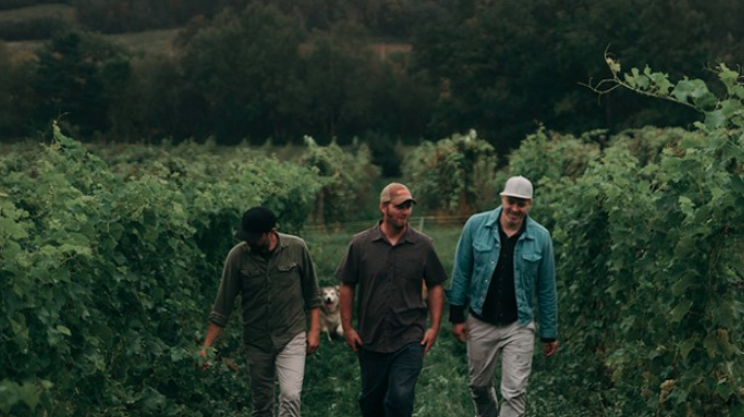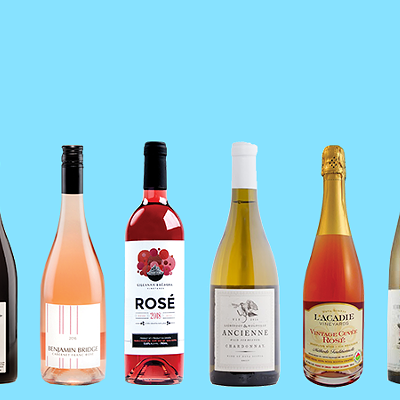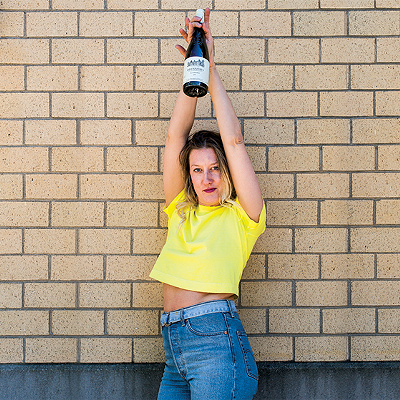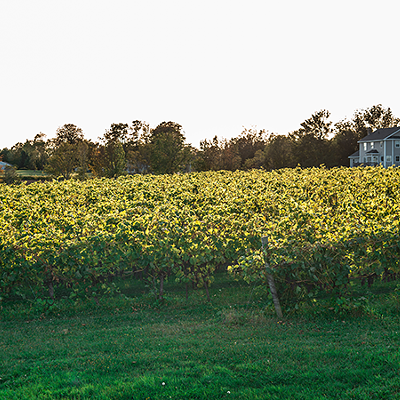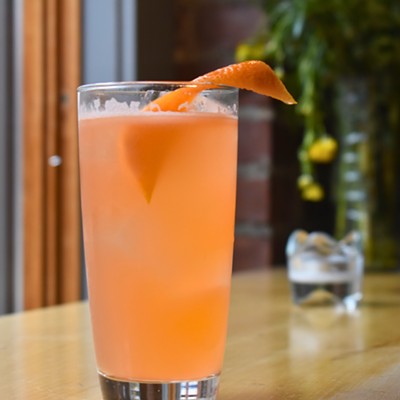Summer is the domain of sparkling wines, crisp rieslings and cool, light whites. As the leaves turn red, so do glasses of wine, which turn toward the bolder, spicier, warmer flavours found in a toasty burgundy or a hearty malbec. But if you're looking for a bit of middle ground, look no further than a rosé.
While a fresh, pert rosé may seem like it is tailor made for a summer day, these wines—which are having a bit of a heyday right now—are actually a great autumn option.
This year's Port of Wines Festival, hosted by the NSLC from September 24-27, will feature six rosé wines.
"In some years we might not have any at all, purely because it's a fall show," says the NSLC's product manager Peter Rockwell, highlighting the long-held notion that a rosé is a warm-weather drink. "But with France"—the feature country of this year's Port of Wines Festival—"we wanted to at least have a representation from Provence, which is arguably their best producer of rosé."
In the past decade, rosé wines have seen a pretty consistent growth in sales numbers, and media outlets from The Globe and Mail and Canadian Living to Bon Appétit, The New York Times and even Buzzfeed have been singing the praises of pink.
But while the NSLC has made a point to include rosés in the festival, Rockwell hasn't seen the sales trend really hit Nova Scotia yet. "In the US it's very trendy," Rockwell says. "Moscato, which is a sweeter wine, is still doing very well here."
He notes that it could be misconception that is holding it back here in Halifax. "The generally held view that all rosé wines are sweet—in many ways thanks to the popularity of California's white zinfandel blush wines which typically have a candied personality—and that rosé wines are training-wheel wines, something you drink when you don't know much about wine, and are one step up from a cooler-style beverage, have done the style no favours," Rockwell says.
Natalie MacLean, a wine writer who also helms Canada's largest wine review website, nataliemaclean.com, closely watches the international wine community. She's been seeing those views change.
"Rosé wines are finally getting rid of that nasty reputation for being pink syrup," she says. "They deserve their meteoric rise in popularity. Well-made rosé wines are dry, complex and ultra-food-friendly.
"In fact," she continues, "they're the perfect wines for hedonists—like me—as they have all the fresh field berry flavours of a red wine without the heavy oak and alcohol. They have lots of mouth-watering juiciness, which makes them perfect for Thanksgiving turkey and holiday dinners."
It's that flexible nature of rosé that makes it such a great autumn pick. After all, nothing pairs better with big family dinners than flexibility.
"It's a perfect food wine," Rockwell agrees. "Generally even if they're drier, they still have a bit of fruit, so it appeals to those who like fruit, those who like dry. They're never usually tremendously heavy or palate-pounding. So they really do work their way through big meals like that which can be kind of difficult to pair wines with."
Avondale Sky Winery's Lady Slipper rosé is one of those perfectly whippy, accommodating wines: balanced enough to please almost any palate, and flexible enough to work with a variety of foods. "It's an amazing pairing with turkey because you get a bit of salt and the cranberry note really works great," says Stewart Creaser, an owner/operator at the winery. He gives all of the credit to their winemaker, Ben Swetnam.
"He makes exceptional rosés," he says. "You have to start with great grapes, but the winemaker is the artist: We like to say that the science is in the vineyard and the art is in the winery."
Swetnam led Avondale Sky to drier rosés, the kind you would find in southern France. "A nice dry or off-dry rosé done well is an excellent use of Nova Scotia grapes," says Creaser. Avondale Sky uses the Leon Millot grape for its Lady Slipper and Lavender wines. "It happens to make an excellent rosé; the grape itself made as a wine has a nice fruit character; you get a lot of dark cherry, cranberry and current notes. Those tend to work really well with a drier wine, in particular rosé."
What Creaser thinks Swetnam does exceptionally well is find balance. "Whether it's a dry style or a very sweet style, the very best wines tend to have good balance between the sweetness and the acidity," he says. "Ben has an uncanny ability to find that spot whether it's a very dry style or a sweet style or something in between like an off-dry rosé."
The Avondale Sky Lady Slipper wine will be at the Port of Wines Festival alongside three French and two New Zealand rosés.
"The Provencal rosés are full in flavour but very balanced and certainly on the drier side," says Rockwell. "The two New Zealanders are a little bit plumper, a little bit darker in colour, too, but still on the drier side. Any kind of sweetness would be the natural berry fruit sweetness, not sugary sweetness." The Lady Slipper, he says, "is a little bit like it's kind of a cross between both of them, that leaner French style and the more plump New Zealand style."
Natalie MacLean has some other suggestions for great Nova Scotian rosés this fall.
"I'm a huge fan of Nova Scotian rosés," says MacLean, the wine expert, who is originally from Sydney. "The cool maritime climate is perfect for producing zesty, fragrant, dry wines. In particular I love Domaine de Grand Pré rosé, L'Acadie Vineyards rosé and Blomidon Estate Winery rosé, as well as the sparkling Benjamin Bridge rosé. I can't think of a better pairing for a down-home, home-cooked meal with family."

